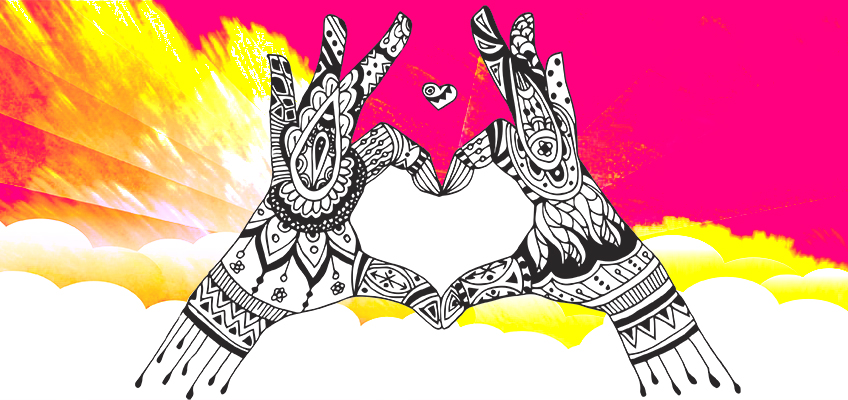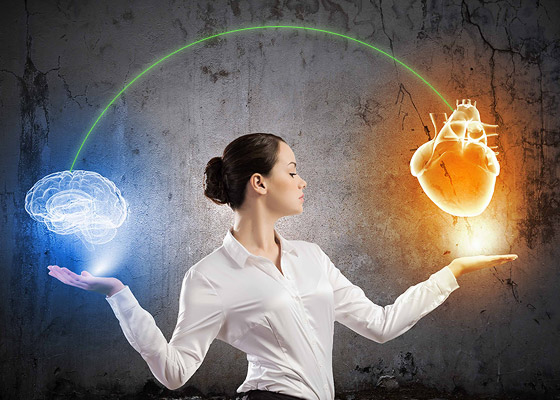
Love as an Advanced Mode of Intelligence
What is love? It is a question sure to elicit a great many responses. Simply defined, love is an affection, attraction, admiration or other strong, positive feeling for another person, thing or idea. From a metaphysical or philosophical perspective, love is more of a complex interweaving of many emotions, behaviors and intangibles whose origin, influence and potential has been food for thought over thousands of years and likely will be for thousands more to come.
People the world over can at least agree on what some of the most cherished forms of love are: romantic love for another and the love shared by children and parents, siblings and friends. So, too do such loves as love of life, nature and country rank high on a very long list.
People today and perhaps in every generation likely would concur that love is something we all could use more of in our lives and throughout the world. And, in our heart of hearts, more than a few of us would concede to an inner desire to be more loving toward others.
Isn’t Love a Form of Intelligence?
One way of creating more love in ourselves and the world could be to have a greater understanding of what love is.
Love has been called the greatest force in the universe, the answer to all things and the stuff that makes the world go round. Certainly there are lots of good arguments to made for any of these.
But what of the notion that love is an actual form of intelligence, some would say an advanced mode of intelligence? How exactly would such an argument be framed? Because, after all, isn’t love merely a feeling that comes from within, albeit a strong or deeply held one?
For instance, a common way people express their love for one another, this thing or that thing is to do it “with all their heart,” not all their mind/brain (i.e. intelligence). Historically, this line of thought assumes, of course, that intelligence is purely within the realm of the brain in your head – until relatively recently.
Researchers at HeartMath Institute and many others around the world now believe, based on scientific studies, that a great deal of human intelligence is heart intelligence. As numerous as the studies demonstrating this are, for most people, it only takes one simple observation in their daily lives for a clear example of their hearts’ intelligence: How many times has the brain in your head told you to do one thing while your heart advised another? No doubt, experiencing an actual physical feeling in the heart when torn between one direction or another has left many a skeptic of listening to your heart at least somewhat skeptical of their skepticism.
How strong is the power or intelligence of love? Here is a scientific experiment HMI researchers who wondered about this conducted several years ago.
A boy, Josh, and his dog, Mabel, were placed in a room together. Then Josh moved to a separate room, the result of which was that the dog’s monitored heart rhythms were chaotic and incoherent, unlike with Josh in the room. Josh was instructed to use a coherence technique to consciously feel feelings of love and care for Mabel, which he did upon re-entering the room with her and while having no physical contact with her. Mabel’s heart rhythms quickly became smooth and stable, or coherent.
How many millions of people with pets throughout history can relate to that?
To Love and Be Loved
Whether we learn to love because of how we are raised, or we are loving at birth, the simple fact is that at some point in life, pretty much everyone has a desire to love and be loved.
Love indeed was the guiding ideal and purpose for the creation of organizations like HeartMath Institute. Twenty-five years ago HMI’s founders set out with a guiding principle that love should permeate everything the institute undertook – in its research of stress, heart intelligence, positive emotions and much more since then.
In the recently released HeartMath book, Heart Intelligence, the authors note in part, “As collective consciousness increases, this will eventually reveal that love is an advanced mode of intelligent living. People have just scratched the surface of awareness regarding the focused power of love and its capacity to create a heart- based environment; one where individuals can transcend fear and what it brings, while manifesting their undiscovered gifts and fulfillment.”
Discovering love and how to be more loving have been the topics of countless books, meditations, workshops, etc. HeartMath has always believed and advised a very active approach to achieving greater love. All of its tools and technologies developed through the years ultimately have been aimed at creating more love – personally, in our families, workplaces and communities and globally as well. This has been especially true with the Global Coherence Initiative.
One of the best examples of these is the Heart Lock-In Technique, a powerful tool included here not only to illustrate the point, but also in the spirit of love.
Heart Lock-In Technique†
Step 1. Focus your attention in the area of the heart. Imagine your breath is flowing in and out of your heart or chest area, breathing a little slower and deeper than usual.
Step 2. Activate and sustain a regenerative feeling such as love, appreciation, care or compassion.
Step 3. Radiate that renewing feeling to yourself and others.
† From HeartMath’s Heart Intelligence book.
Consider this further thought from Heart Intelligence: “Unconditional love is the next vibration of love that humanity is transitioning into and this will eliminate much of the standard complications and problems that seem to form around love’s powerful transformational energy.”
The Benefits of Love
It makes perfect sense that one’s life might generally improve when love in any of its forms first enters. For instance in the case of romantic love for another, love for a newborn, etc. But research shows there are some pretty great benefits that accompany the experience of not only love, but also of appreciation, care, compassion and other positive emotions HeartMath calls qualities of the heart. Among them are:
Here is a final thought as you contemplate the meaning of love in your life and how you can create more of it:
“You, yourself, as much as anybody in the entire universe, deserve your love and affection.” –Buddha
We would love to hear your heart-felt perspectives on Love.
Add a comment below.

